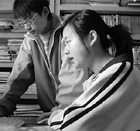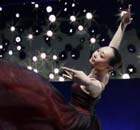Economy
China to raise deposit reserve requirement ratio
(Xinhua)
Updated: 2010-05-03 08:19
 |
Large Medium Small |
BEIJING - The People's Bank of China (PBOC), the central bank, announced Sunday it will raise the deposit reserve requirement ratio (RRR) for most financial institutions for the third time this year amid growing concerns of asset bubbles and economic overheating.
The bank said in a statement on its website that it would raise the deposit reserve requirement ratio (RRR) for financial institutions by half a percentage point from May 10.
However, the RRR for other small financial institutions would rise to 14 percent, and that for large financial institutions to 17 percent.
This is the third rise in the deposit ratio this year. On January 12 and February 17, the central bank raised the deposit ratio by half a percentage point each time.
The move indicated the government was taking further steps to tighten monetary policy in response to concerns of overheating and asset bubbles, said Liu Yihui, an expert with the Financial Research Center of the Chinese Academy of Social Sciences (CASS).
The PBOC has cut the bank reserve requirement ratio four times during the second half of 2008 to stimulate growth, as the global financial crisis started to weigh on the economy.
The country posted a better-than-expected 11.9 percent year-on-year economic growth in the first quarter, but the government was cautious and had repeatedly warned that the economic conditions this year were "very complicated."
China's consumer price index (CPI), the main gauge of inflation, saw a rise of 2.4 percent year on year in March, nearing the ceiling of 3 percent inflation this year that the government has set at the annual parliamentary session that month.
"There is an obvious tendency of overheating," Liu said.
The central bank should introduce further tightening measures and continue to shift China's monetary policy back to "a normal one."
Bank lending fell to 2.6 trillion yuan ($380.7 billion) in the first quarter, compared with a record 4.58 trillion yuan new loans in the corresponding period last year, which was part of the government stimulus plan to support economic recovery.
The central bank said in an earlier report that a major task this year would be to strengthen liquidity management and keep an "appropriate" growth of money supply.
The government has repeatedly stated that the proactive fiscal policy and relatively easy monetary policy would continue given that the economic conditions remained complicated.
Tang Min, vice secretary-general of China Development Research Foundation, said the RRR hike was targeted at asset bubbles, especially those triggered by the surging property market.
Chinese regulators had been taking steps to cool the real estate market and bring down soaring home prices in the past month by cracking down on real estate speculation and providing more affordable homes.
The central bank would keep a close watch on the property market to see whether these measures took effect, and if not, the PBOC might consider raising interest rates to keep inflation in check, said Tang.
But a monitoring period would precede the rate hike, he said.
"The central bank is very prudent on raising interest rates," said Professor Guo Tianyong, of the Central University of Finance and Economics, as it would bring up production costs for domestic enterprises, and in turn hinder economic recovery.
A rate hike was unlikely in the short term, and would depend on price trends in the next few months, he said.











